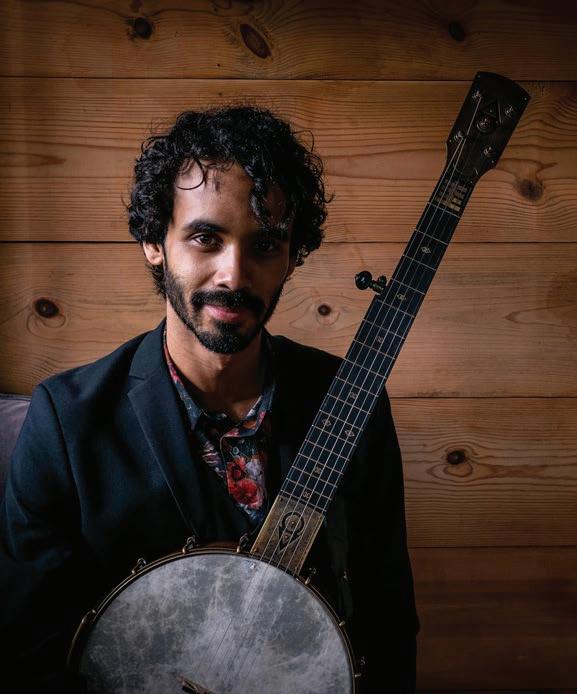TO P
5
FO R KI N D E RGARTE N E RS
Meet our top 5 “A GDS STUDENT WILL...” skills for a kindergarten changemaker-in-training! 1 BUILD NETWORKS If you have the privilege to step into a Kindergarten classroom, there’s a good chance you’ll find students working and playing together. A few scenes from Fall 2021: A group of students sat building a train track, deciding together which train cars to couple for a bridge crossing. While reading My Three Best Friends and Me, Zulay, Kindergarten teachers Jody Welsh and Sam’n Iqbal stopped reading and said, “Turn to your neighbor and tell them about a connection you are making.” During “Question of the Day,” students connected around who has a pet, a sibling, a favorite food, and more. Whether in a structured, goal-directed collaboration, a teacher-guided activity, or free exploration, students in GDS Kindergarten develop empathy, respect for one another, and the relational skills to function as a diverse team. Teachers guide students to look for connections and give compliments to their peers. Finally, teachers emphasize interactions with adults in the building as the students learn about jobs and responsibilities within and beyond GDS. 2 S E L F - A D V O C AT E The Me Box and the family tree projects—two annual stalwart projects—gave this year’s Kindergarteners a platform to share their story to a (mostly) attentive audience. Those are powerful opportunities, not only for learning about each other, but also to affirm and claim ownership of their identity. From that growing self-confidence, they learn to advocate for themselves and attend to—or ally with—their peers’ self-advocacy. Sometimes that means being mindful of the impact of their actions (for example, not leaving a mess behind for someone else to clean up) and elsewhere it means lending their voice in solidarity.
4 TA C K L E P R O B L E M S This October, stretched out in a long line on the LMS field, Kindergarteners in Bianca Santos and Michelle Levy’s class passed mini pumpkins from one end of the line to the other, either overhead or between their legs, as quickly as they could. Of course, passing pumpkins can be wildly exciting when you want to see what’s happening elsewhere on the line—but then, “‘Oops! You aren’t in position for your pass!” After the challenge activity, students and teachers discussed strategies that worked and talked about some of the breakdowns in teamwork. Even at a young age, you have to be able to depend upon your teammates. 5 L E A R N A C T I V E LY A hallmark of a progressive education, active learning involves more than just movement and manipulatives. Student choice, frequent feedback, measuring progress, and reflection are all critical pieces of experiential learning, even in a Kindergarten classroom. This fall, students have acted out pumpkins “rolling out of sight” and a wailing wind for a Halloween poem; they’ve interacted to present the day’s schedule and weather report; and they’ve learned to self-edit simple sentences—collaboratively at the whiteboard or individually with pencil and paper—in order to convey their favorite ideas or most important statements.
3 C O M M U N I C AT E C L E A R LY & P O W E R F U L LY During a November game of “Splat” in math, students had important conversations about their strategies and different points of view with their classmates and teachers. Listening for different ideas and trying to understand new ways of doing math has far-reaching benefits for interpersonal relationships, civic engagement, and, as named above, building networks. Also, whether in imaginative play in the classroom or at “The Floor Is Lava” Climbing Zone of the playground, students learn to communicate expectations for the game and add new story threads in ways that ensure the group will stay unified.
GEORGETOWN DAYS FALL/WINTER 2021—22
11









